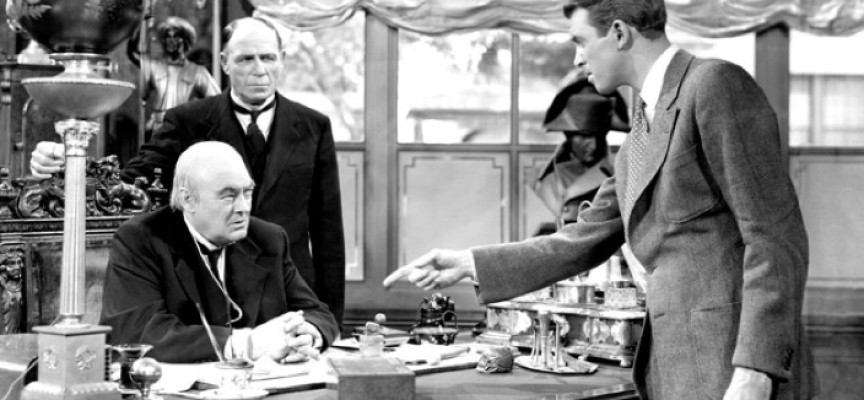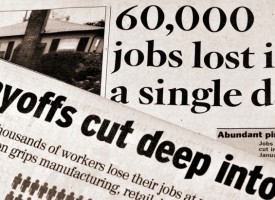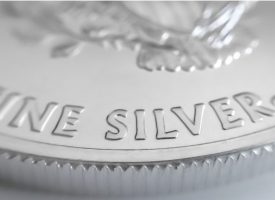On the heels of another wild trading week in world markets, today one of the top economists in the world sent King World News an incredibly powerful piece warning that the world is now set to plunge into the most chaotic and destructive economic depression in history. Below is the fantastic piece from Michael Pento.
By Michael Pento of Pento Portfolio Strategies
April 4 – (King World News) – There can be no denying the fact that Japan seems trapped in an endless lost decade. Despite massive money printing and currency depreciation, the nation can’t seem to shake off its relationship with weak GDP. Likewise, with lackluster economic growth and disappointing data points rolling in every day, the United States appears trapped for eight years and counting in its own lost decade….
Continue reading the Michael Pento piece below…
Advertisement
To hear which company investors & institutions around the globe are flocking to
that has one of the best gold & silver purchase & storage platforms
in the world click on the logo:

This begs the question, is the US economy turning Japanese? More succinctly, it should now be empirically obvious that QE is only effective at re-inflating asset bubbles, but has proven woefully unsuccessful in generating viable GDP growth.
In the 1980’s Japan experienced its own epic credit creation boom like the U.S experienced in the 2000’s. The bubble drove real estate and stocks price to record levels, until it eventually burst–taking those respective asset markets down with it.
After the bubble burst, the Japanese government went on a spending bonanza and rolled out 10 spending projects totaling more than $100 trillion yen. The Bank of Japan (BOJ) policy interest rate was lowered from 6 percent in June 1991, to 0.25 percent by December 2000. However, the BOJ’s balance sheet didn’t increase as extensively as the Federal Reserve’s balance sheet did during the Fed’s QE. Japan did not immediately engage in long-term asset purchases like our Federal Reserve did at the onset of our crisis.
The Nikkei-225, which peaked at 38,916 in December of 1989, sits at just over 19,000 today. The Japanese real estate market, which in 1989 was valued at $24 trillion — four times the value of real estate in the United States at the time–never fully recovered. But just two years into Abenomics, the markets have roared back to life. The sharp decline in stocks and real estate had given birth to the narrative that deflation caused Japan to be mired in several lost decades. But interestingly, CPI has been relatively flat over this period and the money supply continued to grow. The only true deflation has come from air taken out of the respective bubbles in real estate and stocks.
The similarities in the growth rates measured by GDP of Japan’s first lost decade and the last eight years of the United States are revealing. Following the bursting of Japan’s bubble from 1991 to 2000, the average growth of real GDP in Japan stood at 1.2 percent versus the average growth of 4.7 percent during 1980 to 1990. Average growth in industrial production stood at 0.1 percent versus 4.1 percent during that same time.
In the United States, the average growth rate from 2007 to 2014 was 1.2% compared to the 3.3% growth enjoyed in the previous decade. Growth in Industrial production averaged 1.2% vs. the 2.6% during the prior decade.
Shocking Differences Between Japan And The United States
In contrast, the US stock market is up nearly 200% since the lows of great recession. The real estate market in large metropolitan areas like Manhattan and San Francisco have never been stronger. Clearly, the Fed’s decision to immediately combat falling asset prices with QE in the U.S. helped to re-inflate stock and real estate markets. However, the only problem is that it did very little to spur on growth.
Perhaps QE was an employment story rather than a growth story? After all, the unemployment rate surged as high as 10.2% in October of 2009 and the Fed, diligently pursuing their employment mandate, deployed QE to bring unemployment down to 5.5%.
But interestingly enough, in the absence of QE the Japanese unemployment rate never went over 5% for the entire decade. In fact, way before the deployment of Premier Abe’s money printing and bond buying arrow, Japan enjoyed one of the lowest unemployment rates of the industrialized world. And this data point alone should dismiss the popular Keynesian canard that inflation rates and employment rates are inextricably connected.
Unfortunately for both countries, recent data doesn’t portend these lost decades are going to be found any time soon. In the United States, economists have been falling over themselves to downgrade first quarter GDP growth, but also stand ready to blame the weather with alacrity. Both the ADP and Non-Farm Payroll job reports recently disappointed, as the economy created 189,000 and 126k jobs in March respectively.
In addition to this, the pace of U.S. manufacturing growth fell in March to its slowest in almost two years, pressured by slowing gains in new orders and stagnant employment. In fact, after printing $3.7 trillion since the end of the Great Recession, U.S. GDP growth during 2014 (2.4%) was less than the growth (2.5%) experienced during 2010. There isn’t any evidence that QE helps the economy; but there’s plenty of anecdotes about money printing boosting asset prices.
Much the same thing has occurred In Japan, even after more than two years of Abenomics. Economists who had been expecting a 1.7% increase in output from the manufacturing sector from June were disappointed when preliminary government data suggested that production sank 1.2% in July. Manufacturers are now forecasting production to increase 0.1% in August, then fall 3.3% in September. GDP Growth rates in Japan and the U.S. don’t seem to be affected by the level of QE.
Is The United States Turning Japanese?
To answer the question: Are we turning Japanese? You could conclude that from a growth perspective we already are.
But more importantly, Japan sits as an interesting illustration of what the U.S. stock and real estate markets would look like if we hadn’t immediately engaged in QE. These markets would have contracted to a point that could be supported without the aid of government and central banks. In other words, permanently and genuinely healed.
But sadly, neither nation now embraces the function of free markets in setting asset values. It also establishes where the Fed’s newly coined money went. QE revolved around the carousel and canyons of Wall Street’s financial houses. But it never reached Main St. in the form of capital goods creation and full-time employment growth in the productive sector of the economy.
Bursting Debt Bubble To Cause Chaotic And Destructive Worldwide Depression
As the entire global economy sits mired in a lost decade, it is becoming clear QE failed to do anything but re-inflate old asset bubbles. But even much worse, it has created a massive new bubble in the global debt market. When this bubble bursts it will cause a worldwide depression.
That is a terrible price to pay in order to provide the illusion of unsustainable and anemic economic growth; and to further the distance between the average worker and the richest 1% on the planet. The middle classes are quickly losing faith in governments and central banks to provide sustainable growth. Asset bubble creation and the destruction of living standards is all they have achieved. To learn more about Michael Pento’s financial management services CLICK HERE. You can also sign up for Michael Pento's weekly podcast at his website.
***Also, KWN has now released the incredible audio interview with James Turk discussing the coming bank bail-ins that will shock the Western world, the tragic crisis in Greece, and importantly, what every investor can do to protect themselves ahead of the coming chaos. You can listen to it by CLICKING HERE OR ON THE IMAGE BELOW.
© 2015 by King World News®. All Rights Reserved. This material may not be published, broadcast, rewritten, or redistributed. However, linking directly to the blog page is permitted and encouraged.
***ALSO RELEASED: Man Who First Predicted Greek Bank Deposits Would Be Stolen Issues More Shocking Predictions For 2015 CLICK HERE.
The audio interviews with James Turk, Rick Rule, Dr. Paul Craig Roberts, Bill Fleckenstein, Dr. Philippa Malmgren, Egon von Greyerz, Eric Sprott, Robert Arnott, Gerald Celente, Michael Pento, David Stockman, Marc Faber, Felix Zulauf, Andrew Maguire, John Mauldin, John Embry and Rick Santelli are available now. Other recent KWN interviews include Jim Grant — to listen CLICK HERE.














